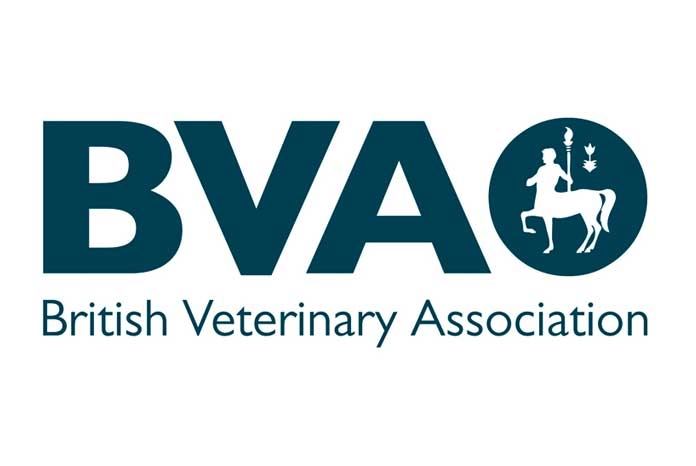
Vets Urge Owners To Take Steps Now To Minimise Seasonal Fireworks Trauma For Pets
The British Veterinary Association (BVA) is urging pet owners and livestock keepers who are worried about their animals’ welfare to take steps now to avoid possible injury and distress during traditional fireworks dates such as Bonfire Night, Halloween, Diwali and New Year’s Eve. The advice comes as vets say they are especially concerned there may be an increase in unregulated backyard fireworks this year as official displays are limited by Covid-19 restrictions.
Many animals have more acute hearing than humans, so the loud bangs and whistles– which at 150 decibels can be as loud as the noise from a jet engine - can cause significant distress and fear and lead to the development of phobia responses.
Vets see first-hand the impact of firework-related distress in pets, livestock and horses at this time of the year. In a survey conducted by BVA in 2018, around one in 14 vets across the country reported seeing animals with firework-related injuries over the previous year, with equine vets significantly more likely to report such cases (19%). By far the most commonly reported cases were self-injuries caused by fireworks-related anxiety, such as fractures in horses that had bolted from their fields or tooth injuries to dogs from chewing furniture.
The negative impact isn’t restricted to noise levels - the debris and remnants of fireworks and paper lanterns in fields and surrounding countryside can also pose a serious risk of injury to livestock, wildlife and zoo animals.
BVA Senior Vice President Daniella Dos Santos said:
“The loud noises and bright flashes from fireworks can be extremely traumatic for animals, from dogs, cats and rabbits to livestock, horses, wildlife and zoo animals. While Covid-19 restrictions may lead to the cancellation of official displays, we are worried about a rise in the number of backyard celebrations.
“We’d encourage pet owners and livestock keepers to consult with their vet as far in advance as possible to discuss management and treatment options, which may include noise desensitisation techniques, applying pheromone products around the house, and preparing a ‘safe place’ for animals.
“With professional input and owner commitment and patience, a phobia of fireworks can be effectively treated with appropriate behaviour-modification techniques. In more severe cases, vets may also prescribe medications to help pets struggling with fireworks distress.
“Even if you don’t expect your pet to be anxious please consider staying close at hand on the noisiest evenings, providing background noise when fireworks are going off and, most importantly, staying calm yourself so your animal is reassured.”
Signs of fireworks-related distress can vary from animal to animal. While some pets show obvious signs of fireworks-related anxiety, such as barking, panting, drooling and attempts to escape, there are also more subtle signs that owners should be aware of, including restlessness and toileting in the house. Cats often hide, while rabbits may keep very still and thump the ground with their back feet.
Cows or sheep who are startled by the loud noises from fireworks are at risk of injuring themselves on fencing, farm equipment or fixtures and fittings within their housing. Poultry are especially at risk of ‘smother’, where in a fear response birds huddle together, which can result in death for some. Horses and ponies are prey animals and exhibit ‘flight’ responses in response to any threat, which can result in running away or trying to escape their enclosures.
BVA has issued the following top tips to keep animals safe:
- If your pet gets distressed by fireworks or other noises, contact your local vet to discuss treatment options. This may include drugs to help dogs with noise phobias or pheromone products to apply next to your pets’ den and around the house to keep them calm.
- Create a well-padded den for your pet to access ahead of fireworks season so they have a safe place to hide when fireworks start.
- Ensure your pet is microchipped and your details are up to date on the database, in case it runs away from home.
- Move small pets such as rabbits and guinea pigs to a quiet place indoors.
- Close windows and curtains and provide background noise to help mask the fireworks.
- If your pet is distressed, remain calm yourself – trying to reassure your pet can inadvertently reinforce anxious behaviour. Restlessness or toileting in the house can be signs of stress, so don’t punish them.
- Keep livestock housed at times when fireworks are likely to be set off locally and remove any firework debris from grazing pasture before letting them out.
- Horses may be better turned out in a field than stabled, as in a stable they may feel enclosed and unable to move. Owners should consult a qualified equine behaviourist if they have significant concerns about their horse’s response to fireworks.
- If you’re hosting a fireworks display, avoid setting them off near horses, livestock or companion animals. Dispose of any debris and remnants of fireworks responsibly.
- Before lighting a bonfire, remember to check for any wild animals that may be hiding in it.
BVA continues to support calls for a reduction in the maximum permitted noise of fireworks as well as further restrictions on the use and sale of fireworks, clear labelling, and a duty of care on users to properly dispose of debris and remnants of fireworks.
For more information, see: https://www.bva.co.uk/take-action/our-policies/fireworks-and-animal-welfare/
More from BVA
- Nominations now open for BVA Awards 2026
- Open letter: UK veterinary associations call for Cambridge University to reject closure of vet school calling the recommendation ‘premature, flawed and short-sighted’
- BVA calls for open-minded approach to AI use but cautions technology must support, not replace, vet expertise
- BVA: Government’s new Animal Welfare Strategy ‘positive step towards improving the lives of millions of animals’
- BVA raises serious concerns as Cambridge University vet school faces renewed uncertainty

 5 years ago
5 years ago  1420 views
1420 views